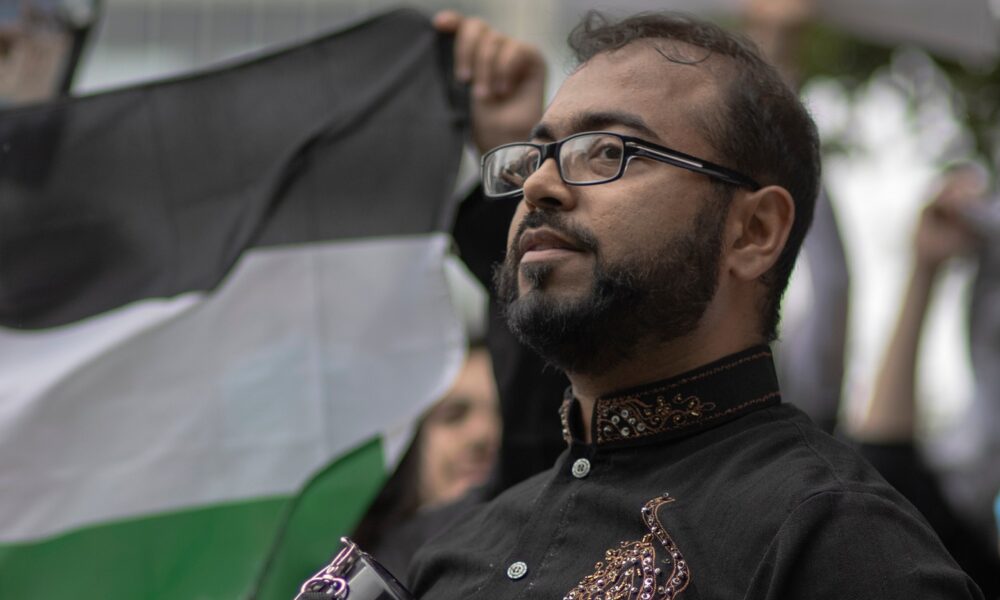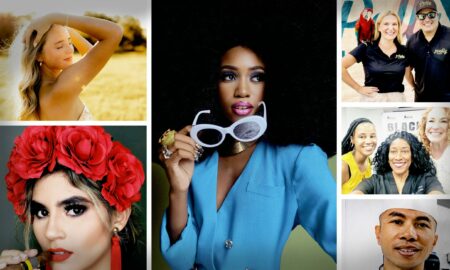

Today we’d like to introduce you to Faizan Syed.
Hi Faizan, thanks for joining us today. We’d love for you to start by introducing yourself.
My name is Faizan Syed and I am the Executive Director of the Texas chapter of the Council on American-Islamic Relations Austin & Dallas Fort-Worth offices (CAIR-TX). I was born in Lahore Pakistan and moved to St. Louis, Missouri when I was four years old. I grew up in St. Louis my whole life and after graduating High School studied at Drake University in Des Moines, IA. Initially, I was studying Astronomy, Physics, and Math. However, during my sophomore year, I found the true faith, that’s right Politics. During my sophomore year, I experienced the Iowa Presidential Caucus. I was astonished why all these folks who were running for President such as Mitt Romney, John McCain, Hiliary Clinton (the 1st attempt), and a young African American Senator from Chicago who had “no chance of winning” were coming to the basic geographic ‘middle of nowhere America’. Many young folk gravitated to Obama’s campaign and through strong grassroots mobilization he won the Iowa caucus and that eventually propelled him to the Presidency of the U.S. It was at that time I realized that small groups of people at the right place and the right time could create impact that will change the world.
After that, I graduated from Political Science during the recession. You would think that finding gainful employment with a Politics degree and a host of random sciences would be as easy during one of America’s greatest economic recession. One would be wrong :D. It was during that time that I would watch the news and hear of the Park 51 controversy dubbed by anti-Muslim bigots as the “ground zero victory mosque”. This was the first time Islamophobia had become mainstream and divisive across the U.S. The only group that I saw that would go on the news and challenge these bigots was CAIR. I realized that’s the organization I wanted to work for.
I called the National office, as a good recent College graduate to volunteer or seek an internship, unpaid of course. They told me there is a local office in St. Louis, MO. I contacted them and they said, “listen we’re looking for a full-time Executive Director do you want the job”. I said, “well listen, I have zero experience in civil rights and zero in nonprofits…I’ll take the job”.
Alhamdulilah, I was the Executive Director of CAIR-Missouri for nearly 8 years and moved to Dallas 3-months before the pandemic and became the Director here.
Can you talk to us a bit about the challenges and lessons you’ve learned along the way? Looking back would you say it’s been easy or smooth in retrospect?
Defend the civil rights of American Muslims and challenging anti-Muslim bigotry is quite a challenge. Externally, Islamophobia has become politically mainstream and a tool used by fools with political ambitions to demonize others and use fear to gain votes. This reality has meant systematic demonetization from government to news outlets, all of which have really exploded on social media. Long before the campaign and election of Donald Trump, really during the 2008 Presidential election when Barack Obama was labeled as a “secrete Muslim” by Trump, I saw this trend creeping forward. My entire career with CAIR has been post Obama and the mainstreaming of Islamophobia. The results are violent attacks against American Muslims and houses of worship. In Dallas alone, we’ve seen armed militias ‘protest’ in front of Islamic Centers and Schools during the time the Texas Legislature was ‘banning Sharia”. This politicization of our faith led individual actors to carry out armed protests and threats right here in Dallas. One of the most recent tragedies involved the shooting death of Adil Dghoughi a young Moroccan Man who was shot and killed in a rural part of Texas. The man who murdered Adil was not charged or arrested for nearly 2-weeks, and only after the we got Adil’s story in National and international news outlets. The external struggle is always a challenge.
However, the greater struggle which is so common in civil rights organization is the internal challenge of defending and educating American Muslims. First, the need for legal services far outstrips what our office can provide. Regularly we have to turn clients away due to limited resources. Beyond that, many American Muslims are first- or second-generation immigrants. A mentality has built up within the community to focus on working hard, getting their kids educated, and live lives facing inwards. It’s an uphill battle to educate American Muslims about their rights, to encourage them to come forward when acts of discrimination occur, and to participate in the civic process. I do believe the next generation will be better in this regards, however, the first-generation straddles two worlds. Living in the U.S. and their country of origin. While trying to make a livelihood it’s difficult to create a strong balance between these two forces.
As you know, we’re big fans of you and your work. For our readers who might not be as familiar what can you tell them about what you do?
I’m a grassroots activist through and through. I’m proud to be an American-Muslim and that is the identity I present forward. My work is really quite hectic, as one can expect for any non-profit but it involves the following:
– Advocating for Clients: Our office takes on cases of discrimination and anti-Muslim bigotry. I strive to find these clients’ legal resources and advocate for them. This involves contacting employers, government agencies, law firms, and speaking to the news.
– Civic Engagement: I regularly encourage American Muslims to vote, educate them about the democratic process, and set up meetings with constituents and their elected officials. I believe in giving a voice to our community in halls of power.
– Media: You may regularly see me speaking to news outlets, holding press conferences, and sharing stories to highlight cases of injustice.
– Outreach & Education: I regularly give Jummah Khutbahs “Friday Sermons” within the Muslim community and hold educational workshops both in person and virtually. I also regularly visit schools, Universities, and other facilities to hold similar workshops to educate them about Islam and American Muslims and clear misconceptions.
– Youth Empowerment: The most rewarding part of my job is to teach young High School students about leadership. All the skills I’ve developed such as public speaking, debate, how to influence government, history, and leadership techniques I regularly teach to hundreds of students who are part of our leadership program.
What quality or characteristic do you feel is most important to your success?
Honestly, being sincere in the work and passionate about the people is essential. I love what I do because I am an American-Muslim and nothing is more rewarding then being able to help others who are going through the same struggles I went through growing up.
Contact Info:
- Email: info@cairtx.org
- Website: www.CAIRTX.org
- Instagram: https://www.instagram.com/faizan.s.syed/
- Facebook: https://www.facebook.com/FaizanSyedPage







Image Credits:
CAIR-Texas










